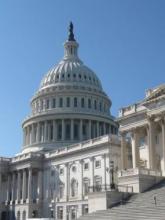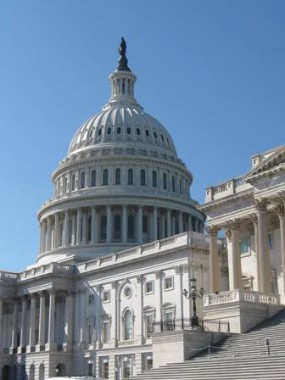User login
Physicians will get a 0.5% raise in Medicare pay on Jan. 1, thanks to a last-minute legislative fix to the Sustainable Growth Rate formula signed into law by President Obama on Dec. 26.
The Pathway for SGR Reform Act of 2013 was attached as an amendment to the Bipartisan Budget Agreement of 2013. The budget deal, brokered by Sen. Patty Murray (D-Wash.) and Rep. Paul Ryan (R-Wis.), passed the House on Dec. 12 and the Senate on Dec. 18. The Congressional Budget Office estimated that the temporary fix would cost $3.3 billion in 2014 and a total of $7.3 billion through 2023. It would be paid for by cutting Medicaid payments for hospital-based charity care and to long-term care hospitals.
The law also extends the 2% sequestration cut to Medicare payments by 2 years, to 2023.
It encourages the CMS to simplify physicians’ administrative burden by more closely coordinating quality measure requirements and giving doctors timely feedback.
The law extends funding for a variety of other health-related federal programs for an additional 3 months, including for Area Agencies on Aging. Finally, the law delays enforcement of the "two-midnight rule" until October 2014. The goal of the rule is to cut down on hospitals using observation status to keep from admitting patients. Hospitals have until Oct. 1, 2014, to adjust to the new policy, which requires admission if a physician thinks a patient will need a stay longer than 48 hours.
Congress was expected to consider a permanent replacement for the SGR when it returned on Jan. 6.
Physicians will get a 0.5% raise in Medicare pay on Jan. 1, thanks to a last-minute legislative fix to the Sustainable Growth Rate formula signed into law by President Obama on Dec. 26.
The Pathway for SGR Reform Act of 2013 was attached as an amendment to the Bipartisan Budget Agreement of 2013. The budget deal, brokered by Sen. Patty Murray (D-Wash.) and Rep. Paul Ryan (R-Wis.), passed the House on Dec. 12 and the Senate on Dec. 18. The Congressional Budget Office estimated that the temporary fix would cost $3.3 billion in 2014 and a total of $7.3 billion through 2023. It would be paid for by cutting Medicaid payments for hospital-based charity care and to long-term care hospitals.
The law also extends the 2% sequestration cut to Medicare payments by 2 years, to 2023.
It encourages the CMS to simplify physicians’ administrative burden by more closely coordinating quality measure requirements and giving doctors timely feedback.
The law extends funding for a variety of other health-related federal programs for an additional 3 months, including for Area Agencies on Aging. Finally, the law delays enforcement of the "two-midnight rule" until October 2014. The goal of the rule is to cut down on hospitals using observation status to keep from admitting patients. Hospitals have until Oct. 1, 2014, to adjust to the new policy, which requires admission if a physician thinks a patient will need a stay longer than 48 hours.
Congress was expected to consider a permanent replacement for the SGR when it returned on Jan. 6.
Physicians will get a 0.5% raise in Medicare pay on Jan. 1, thanks to a last-minute legislative fix to the Sustainable Growth Rate formula signed into law by President Obama on Dec. 26.
The Pathway for SGR Reform Act of 2013 was attached as an amendment to the Bipartisan Budget Agreement of 2013. The budget deal, brokered by Sen. Patty Murray (D-Wash.) and Rep. Paul Ryan (R-Wis.), passed the House on Dec. 12 and the Senate on Dec. 18. The Congressional Budget Office estimated that the temporary fix would cost $3.3 billion in 2014 and a total of $7.3 billion through 2023. It would be paid for by cutting Medicaid payments for hospital-based charity care and to long-term care hospitals.
The law also extends the 2% sequestration cut to Medicare payments by 2 years, to 2023.
It encourages the CMS to simplify physicians’ administrative burden by more closely coordinating quality measure requirements and giving doctors timely feedback.
The law extends funding for a variety of other health-related federal programs for an additional 3 months, including for Area Agencies on Aging. Finally, the law delays enforcement of the "two-midnight rule" until October 2014. The goal of the rule is to cut down on hospitals using observation status to keep from admitting patients. Hospitals have until Oct. 1, 2014, to adjust to the new policy, which requires admission if a physician thinks a patient will need a stay longer than 48 hours.
Congress was expected to consider a permanent replacement for the SGR when it returned on Jan. 6.

